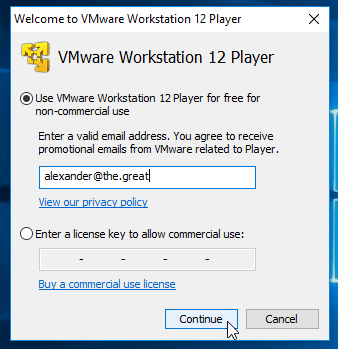John the Ripper is free and Open Source software, distributed primarily in source code form. If you would rather use a commercial product tailored for your specific operating system, please consider John the Ripper Pro, which is distributed primarily in the form of 'native' packages for the target operating systems and in general is meant to be. John the Ripper works in 3 distinct modes to crack the passwords: Single Crack Mode; Wordlist Crack Mode; Incremental Mode; John the Ripper Single Crack Mode. In this mode John the ripper makes use of the information available to it in the form of a username and other information. This can be used to crack the password files with the format of. John the Ripper is a very popular program made to decipher passwords, because of the simplicity of its playability and the multiple potential incorporated in its working. John the Ripper doesn't need installation, it is only necessary to download the exe. In our computer and start using it without any.
Running john with a password list on a shadow file | |
| Developer(s) | OpenWall |
|---|---|
| Initial release | October 3, 2002 |
| Stable release | |
| Repository | |
| Operating system | Cross-platform |
| Type | Password cracking |
| License | GNU General Public License Proprietary (Pro version) |
| Website | www.openwall.com/john/ |
John the Ripper is a freepassword cracking software tool.[2] Originally developed for the Unix operating system, it can run on fifteen different platforms (eleven of which are architecture-specific versions of Unix, DOS, Win32, BeOS, and OpenVMS). It is among the most frequently used password testing and breaking programs[3] as it combines a number of password crackers into one package, autodetects password hash types, and includes a customizable cracker. It can be run against various encrypted password formats including several crypt password hash types most commonly found on various Unix versions (based on DES, MD5, or Blowfish), KerberosAFS, and Windows NT/2000/XP/2003 LM hash. Additional modules have extended its ability to include MD4-based password hashes and passwords stored in LDAP, MySQL, and others.[4]
Sample output[edit]
Here is a sample output in a Debian environment.
The first line is a command to expand the data stored in the file 'pass.txt'. The next line is the contents of the file, i.e. the user (AZl) and the hash associated with that user (zWwxIh15Q). The third line is the command for running John the Ripper utilizing the '-w' flag. 'password.lst' is the name of a text file full of words the program will use against the hash, pass.txt makes another appearance as the file we want John to work on.
Then we see output from John working. Loaded 1 password hash — the one we saw with the 'cat' command — and the type of hash John thinks it is (Traditional DES). We also see that the attempt required one guess at a time of 0 with a 100% guess rate.
Attack types[edit]
One of the modes John can use is the dictionary attack. It takes text string samples (usually from a file, called a wordlist, containing words found in a dictionary or real passwords cracked before), encrypting it in the same format as the password being examined (including both the encryption algorithm and key), and comparing the output to the encrypted string. It can also perform a variety of alterations to the dictionary words and try these. Many of these alterations are also used in John's single attack mode, which modifies an associated plaintext (such as a username with an encrypted password) and checks the variations against the hashes.
John also offers a brute force mode. In this type of attack, the program goes through all the possible plaintexts, hashing each one and then comparing it to the input hash. John uses character frequency tables to try plaintexts containing more frequently used characters first. This method is useful for cracking passwords that do not appear in dictionary wordlists, but it takes a long time to run.
See also[edit]
References[edit]
- ^https://www.openwall.com/lists/announce/2019/05/14/1
- ^Anonymous (2001). Maximum Linux Security (2 ed.). Sams Publishing. p. 154. ISBN0-672-32134-3.
- ^'Password Crackers'. Concise Cybersecurity. Archived from the original on 2017-04-04. Retrieved 2016-12-03.
- ^'John the Ripper'. sectools.org.
External links[edit]

John the Ripper is a fast password cracker, currently available for many flavors of Unix (11 are officially supported, not counting different architectures), Windows, DOS, BeOS, and OpenVMS. Its primary purpose is to detect weak Unix passwords. Besides several crypt(3) password hash types most commonly found on various Unix flavors, supported out of the box are Kerberos AFS and Windows NT/2000/XP/2003 LM hashes, plus several more with contributed patches.
Changes for this release :
- Corrected the x86 assembly files for building on Mac OS X.
- Merged in some generic changes from JtR Pro.


John the Ripper is a fast password cracker, currently available for many flavors of Unix (11 are officially supported, not counting different architectures), Windows, DOS, BeOS, and OpenVMS. Its primary purpose is to detect weak Unix passwords. Besides several crypt(3) password hash types most commonly found on various Unix flavors, supported out of the box are Kerberos AFS and Windows NT/2000/XP/2003 LM hashes, plus several more with contributed patches.
Changes for this release :
- Corrected the x86 assembly files for building on Mac OS X.
- Merged in some generic changes from JtR Pro.
Post scriptum
Comments
John The Ripper 1.7.3.1 Program
Related Articles
John The Ripper 1.7.3.1 Pro Mod
| John the Ripper |
|
| Password Cracking |
|

